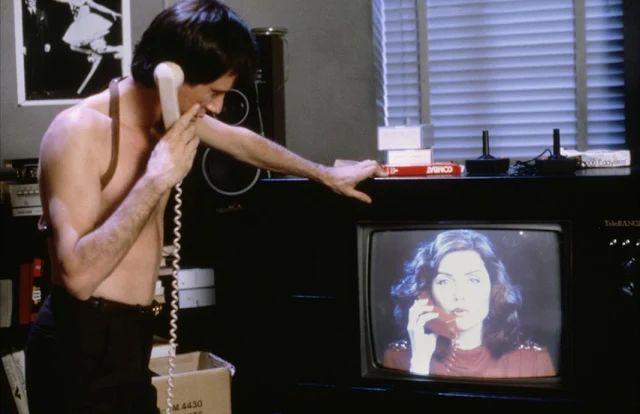Cast: Robert De Niro, James Woods, Elizabeth McGovern, Treat Williams, Tuesday Weld, Burt Young, Joe Pesci, Danny Aiello, William Forsythe, James Hayden, Darlanne Fluegel, Larry Rapp, Jennifer Connelly, Scott Tiler, Rusty Jacobs, Brian Bloom, Adrian Curran, Mike Monetti, Noah Moazezi, James Russo.
Screenplay: Leonardo Benvenuti, Piero De Bernardi, Enrico Medioli, Franco Arcalli, Franco Ferrini, Sergio Leone, Stuart Kaminsky,
based on a novel by Harry Grey.
Cinematography: Tonino Delli Colli.
Production design: Giovanni Natalucci.
Film editing: Nino Baragli.
Music: Ennio Morricone.
Sergio Leone's romantic epic
Once Upon a Time in America is some kind of great film, but I'm not sure what. It's about gangsters, to be sure, but is it really a gangster movie, in the lineage that stretches from the Warner Bros. gangster movies to the familiar parts of the
oeuvre of Francis Ford Coppola and Martin Scorsese? It seems to me to more of a character study, a kind of Bildungsroman about the moral education of David "Noodles" Aaronson (Robert De Niro), whose internal life seems to me very different from that of the paradigmatic troubled gangster, Michael Corleone. That the whole story of
OUATIA may in fact be Noodles's opium dream, as the concluding shot seems to suggest, gives a quality of fantasy to the film, as even its fairytale title underscores. I have to admit that at first I wasn't happy about giving up four hours of my movie-watching time to Leone's film, which still lingers in a kind of sad obscurity in the minds of the general public, especially since it was mistreated, panned, and tanked on its original release, when it was cut by 90 minutes. It was only the efforts of a few critics and
cinéastes that promoted its rehabilitation, and its recent showing on TCM was a "premiere" for that network after 35 years. There are some self-indulgent moments to the movie, too -- scenes that move more slowly than they might, setups that don't quite deliver on their potential. It's very much a "foreign film" in narrative technique, more redolent of Antonioni than of Coppola. What American director of the 1980s would have come up with such an enigmatic ending as the garbage truck and the flashback to the opium den? (The American cut by the Ladd Company ended with an off-screen gunshot suggesting that Max/Bailey had killed himself.) But even its flaws have a hint of greatness about them.





















